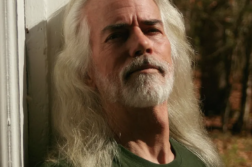THERE ARE TWO great, universally recognized demarcators of the modern gay liberation movement. The first, of course, is the Stonewall Rebellion of 1969. The second took place about five years later—the 1973-74 declassification of homosexuality as a mental disorder by the American Psychiatric Association.
The struggle within psychiatry that continued post-declassification was the touchstone of my own gay activism. Having experienced striking homophobia while coming out during interviews for a psychiatric residency several years after the declassification—as described in the first piece I ever wrote for the gay press in Boston’s Gay Community News—I joined forces with gay psychiatrists working for change, editing their newsletter, which carried pieces with titles such as “Psychoanalytic Statute Prevents Legal Entry of Gay Aliens.” That work and my writing for the gay press were in a watchdog capacity against reactionary forces in psychiatry. In the process, I became a chronicler of a critical shift in scientific thinking about sexuality from, as I liked to put it in those days, “the temples of psychiatry to the laboratories of sex research.”
The relationship of psychiatry and psychoanalysis to homosexuality has come a long way since then. To get a sense of the distance traveled over the last generation, I interviewed Mark J. Blechner, a highly respected psychologist and psychoanalyst who has been combating homophobia, establishing therapeutic outreach to people with AIDS, and writing challenging, fascinating discourses on hate, prejudice, and other neglected topics in psychoanalysis. His latest collection, Sex Changes: Transformations in Society and Psychoanalysis, was recently published by Routledge.
Along with fifty articles and book chapters, Blechner has published two previous books—Hope and Mortality (1997) and The Dream Frontier (2001)—and is the editor-in-chief of the journal Contemporary Psychoanalysis. He is the training and supervising psychoanalyst at the William Alanson White Institute, where, as founder and director of its HIV Clinical Service from 1991 until 2001, he led the first psychoanalytic clinic devoted to working with people with AIDS, their relatives, and caregivers. Blechner has taught at Columbia, Yale, and NYU.
The interview was conducted by e-mail but reflects an ongoing dialogue about psychiatry that Blechner and the interviewer have been carrying on for years.






